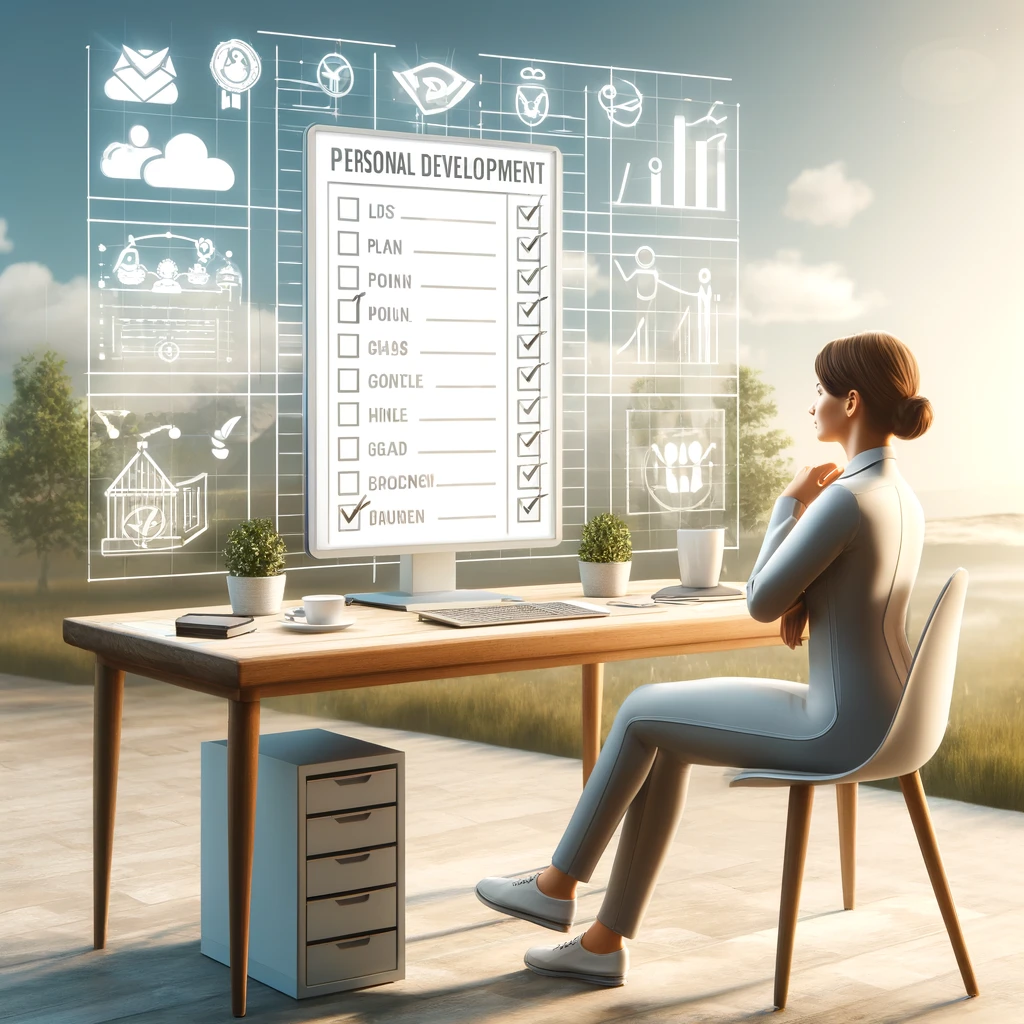The 6 Best Ways to Measure Progress in Your Personal Development Plan.
Creating a personal development plan is like drafting a battle strategy for self-improvement, but to ensure it’s effective, you must regularly measure your progress and keep yourself accountable. If you’ve not started on your personal development journey yet, you’ll find this article helpful.
To win, you will need to channel your inner Sun Tzu, but don’t stress, this comprehensive guide will walk you through various strategies and tools to help you win every battle on your way to achieving your personal development goals.
1. Set Clear, Measurable Personal Development Goals
If your goals are vague, you’ll set yourself up for an endless game of hide and seek with success. The foundation of any successful personal development plan is setting clear, measurable goals. To achieve this, apply the SMART criteria:
- Specific: Don’t be vague about what you want, get it nailed. Instead of “Get better at talking”, try “nail a TED talk by October.”
- Measurable: Track it, think hours practiced, speeches given, presentations delivered.
- Achievable: Set realistic goals based on your current situation and resources. Don’t aim too high.
- Relevant: Align your goals with your life’s big picture.
- Time-bound: Set deadlines, whether you love them or hate them, they work.
Break larger goals into smaller, manageable steps. This not only makes them less daunting but also provides a clear path to follow, allowing you to celebrate the small wins and keep the Dopamine flowing.

2. Utilise Tracking Tools and Apps
Technology isn’t just for Cat videos, use it to your advantage.

- Trello or Asana: Use these project management tools to create boards or lists for each of your goals. You can add tasks, set deadlines, and move items through stages from ‘To Do’ to ‘Completed.’ These will help you organise your life better than Marie Kondo.
- Habitica: This app gamifies your personal development by turning tasks into quests and goals into monsters to defeat, providing a fun and engaging way to stay on track. Slaying your to-do-list suddenly got fun.
- Google Sheets or Excel: Create a custom spreadsheet to track your progress. Include columns for tasks, deadlines, progress status, and notes.
Regularly updating these tools and reviewing your progress can help you stay focused and motivated.
3. Regular Self-Assessment
Self-assessment is a critical component of measuring progress. Set aside time weekly or monthly to reflect on your achievements and challenges:
- Weekly Reviews: At the end of each week, assess what you accomplished, what obstacles you faced, and what you can improve. This practice helps you stay aware of your progress and make necessary adjustments. Basically, pat yourself on the back of kick your own butt, whatever’s required.
- Monthly Reviews: Conduct a more in-depth review at the end of each month. Compare your progress against your monthly goals and adjust your plan if needed.
Journaling can be an effective self-assessment tool. Write about your successes, struggles, and insights. This not only helps you track progress but also provides a valuable record to reflect upon. Future you will thank currently you for this wisdom.
4. Seek Feedback
Feedback from others can provide a fresh perspective on your progress and help you identify areas for improvement, not only this but others are likely to be far more objective than you can be:
- Mentors and Coaches: Regularly discuss your goals and progress with a mentor or coach. Their experience and insights can guide you and keep you accountable. Find the Gandalf to your Frodo.
- Peers and Colleagues: Share your goals with trusted friends or colleagues. Their feedback can help you see your progress from different angles and provide encouragement.
Acting on constructive feedback is crucial and is like a booster shot for your personal development. Use it to refine your goals and strategies, ensuring your personal development plan remains relevant and effective.
5. Celebrate Milestones
Recognizing and celebrating your achievements, no matter how small, is essential for maintaining motivation,. You’ve climbed the mountain, now enjoy the view:
- Set Milestones: Break your goals into smaller milestones. Each time you reach a milestone, take a moment to celebrate.
- Reward Yourself: Treat yourself to something you enjoy when you hit a significant milestone. This could be as simple as taking a day off, enjoying a favourite meal, or buying something you’ve wanted.
Celebrating milestones reinforces positive behaviour and helps you maintain enthusiasm for your personal development journey.
6. Adapt & Evolve
Personal development is a continuous process, and your goals may need to evolve as you grow:

- Be Flexible: Life changes, and so should your goals. If you encounter new opportunities or challenges, adjust your goals accordingly without feeling like a failure.
- Continuous Improvement: Always look for ways to improve your personal development plan. Regularly review and refine your goals and strategies to ensure they remain relevant and effective.
Embracing flexibility and a mindset of continuous improvement ensures that your personal development efforts are sustainable and aligned with your evolving aspirations and able to cope with life’s twists and turns.
You can overcome any obstacle in your personal development journey

Measuring progress in your personal development plan is essential for achieving your goals and ensuring continuous growth. By setting clear, measurable goals, utilizing tracking tools, engaging in regular self-assessment, seeking feedback, celebrating milestones, and remaining adaptable, you can effectively track and enhance your personal development journey.
Remember, the key to success is not just in creating a plan but in consistently monitoring and adjusting it to ensure you are always moving forward.


